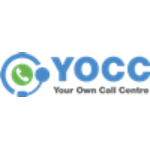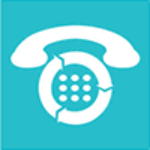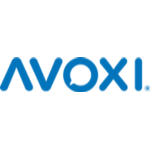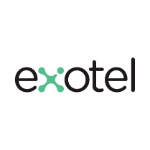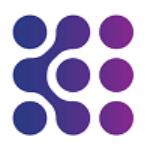TechnologyCounter provides genuine, unbiased real user reviews to help buyers make informed decisions. We may earn a referral fee when you purchase through our links, at no extra cost to you.
List of 15 Best Cloud Telephony Software
Showing 1 - 15 of 158 productsServetel is an innovative cloud communication platform that specializes in providing top-notch solutions for businesses of all sizes. With its user-friendly interface features, Servetel enables companies to streamline their communication processes an...Read Servetel Reviews
Grasshopper is a software designed to transform the world of computer programming. With its user-friendly interface design, Grasshopper allows beginners and experts alike to easily create complex algorithms and code. Say goodbye to traditional coding...Read Grasshopper Reviews
OpenPhone is a communication software that brings a seamless is a experience to businesses and individuals alike. With its intuitive and user-friendly interface, OpenPhone aims to streamline your phone calls, messages, voicemails, and more, all in on...Read OpenPhone Reviews
CallRail is a call tracking and analytics software designed to help businesses measure the success of their marketing efforts and optimize their campaigns. With advanced features tools, CallRail is a solution for businesses looking to gain valuable i...Read CallRail Reviews
MCUBE is a software designed to streamline and transform the way businesses operate. Utilizing advanced technology and user-friendly features, MCUBE provides efficient solutions to increase productivity and profitability. Say goodbye to traditional m...Read MCUBE Reviews
MOBtexting is a leading Communication Platform as a Service (CPaaS). MOBtexting gives A2P Messaging and Cloud Telephony Services to advance organizations, computerize client collaborations, improve client commitment, track the correspondence, and so...Read MOBtexting Reviews
YOCC is a solution for efficient communication in todays fast-paced world. With its user-friendly interface and innovative features, YOCC streamlines communication processes, allowing users to connect, collaborate, and communicate seamlessly. Join th...Read YOCC Reviews
Freshdesk Contact Center, now known as Freshcaller, is a call center software that operates through the cloud. This user-friendly solution allows for quick set-up of a business call center and eliminates the need for managing the intricacies of call...Read Freshdesk Contact Center Reviews
Tenfold is a software designed to enhance the customer experience and optimize sales efficiency. With its advanced features and seamless integration, Tenfold simplifies the process of managing customer interactions and helps businesses close more dea...Read Tenfold Reviews
MyOperator is a leading cloud-based call management system designed to simplify and streamline communication for businesses of all sizes. With its user-friendly interface features, MyOperator enables companies to handle large volumes of calls effecti...Read MyOperator Reviews
AVOXI is a leader in innovative telecommunications solutions, offering exceptional communication services to businesses of all sizes. With a focus on reliable is a global communication, AVOXI has become a trusted partner for companies seeking seamles...Read AVOXI Reviews
CloudTalk is a Call Center Software specially created for the use of agencies and small to medium-sized enterprises. It is an online solution that provides features such as Queue Management, Call Recording, Contact Management, and VoIP all in one co...Read CloudTalk Reviews
Exotel is a leading cloud-based communication platform that connects businesses with their customers through reliable and scalable solutions. With a focus on simplifying communication processes and enhancing customer engagement, Exotel empowers busin...Read Exotel Reviews
PhoneBurner is a software designed to streamline and supercharge your sales process. Say goodbye to manual dialing and time-consuming sales tasks, and hello to increased productivity and business growth. With PhoneBurner, youll experience a whole new...Read PhoneBurner Reviews
Knowlarity is a leading technology company that has revolutionized the way businesses communicate with their customers. With a mission to simplify and streamline communication, Knowlarity offers a range of solutions for businesses, including cloud-ba...Read Knowlarity Reviews
- What Is Cloud Telephony Software?
- Top Reasons Why Businesses Need Cloud Telephony Software?
- What Are the Top Key Features of Cloud Telephony Software?
- What Are the Top Benefits of Cloud Telephony Software?
- What Are the Steps to Choose the Right Cloud Telephony Software?
- What Are the Types of Cloud Telephony Software for Different Industries?
- What Are the Technology Trends for Best Cloud Telephony Software?
- What Are the Deployment Options for Cloud Telephony Solutions?
What Is Cloud Telephony Software?
Cloud Telephony Software is a service that enables a company or organization to make, receive, and manage phone calls over the Internet. The service is cloud based, which means that a provider manages all functions and features remotely.
As a result, organizations do not need to install any hardware and may just access the service via an Internet connection. The key advantage of the best Cloud Telephony software is that it is a less expensive solution than traditional phone systems because no hardware is required.
Furthermore, because the service is located in the cloud, users will always have access to the most recent version, which includes new features and updates, helping them to stay competitive in their market. Cloud telephony also includes additional capabilities like call forwarding, transfer, and voicemail, giving users more choice over how they manage calls.
In addition, the service provides greater scalability, allowing organizations to simply add and delete users. To summarise, top Cloud Telephony Software is an excellent solution for businesses to decrease phone costs while providing better service to their customers. Businesses may access more features and save money on their phone system by utilizing the power of the Internet.
Top Reasons Why Businesses Need Cloud Telephony Software?
1. Automated Support Services: Automated customer support services such as call routing, automated replies to customer queries, and other interactive services are provided via top cloud telephony software.
2. Easy Access and Updates: Cloud telephony enables consumers to easily access and upgrade their systems with little technical help.
3. Cost Savings: Businesses can save money on installation and maintenance by employing an internet-based communication system instead of traditional telephone systems.
4. Enhance Productivity: Cloud telephony improves productivity and speeds up operations by allowing employees to focus on their main business activities.
5. Increased Mobility: By providing virtual phone numbers that employees may use to answer work-related calls from their mobile devices, cloud telephony enables organizations to stay connected even while they are on the road.
6. Elimination of Human Errors: Cloud telephony solutions with AI-powered capabilities assist prevent frequent blunders that can arise when people answer the phones.
7. Improved Customer Support: Cloud based telephony system expanded customer care makes it easier for businesses to give the best possible experience to their customers.
8. Call Analytics: Businesses can measure crucial call metrics using the analytics feature of cloud telephony providers in india.
9. Enhanced Team Collaboration: Cloud telephony solutions include capabilities like web conferencing that make it easier for teams to collaborate.
10. Easy Number Portability: Cloud telephony facilitates the transfer of phone numbers from one service provider to another.
11. Security: A strong data encryption mechanism ensures the security of consumer data.
12. Disaster Recovery: The best cloud telephony software includes data backup options, making disaster recovery easier.
13. Flexible Scalability: Businesses may scale up or down their communication demands with cloud based telephony system.
14. Integrated Communication Applications: Cloud telephony solutions work with other communication tools like CRM and Help Desk.
15. Advanced Features: Advanced capabilities like as video calling, VoIP, call recording, and auto-attendant are available with cloud telephony solutions.
What Are the Top Key Features of Cloud Telephony Software?
1. Scalability: Cloud telephony solutions are designed to scale up and down as user demand dictates. As a result, they are ideal for enterprises of all sizes.
2. Cost-effective: The best cloud telephony software is recognized to be less expensive than traditional phones and cloud PBX systems.
3. Easily Add/Drop Features: Many cloud telephony solutions allow you to effortlessly add and remove features like call waiting, voicemail, and call forwarding as needed.
4. Enhanced Usability: Cloud telephony software frequently has a user-friendly interface that makes it simple for users to navigate and control their communications.
5. Automated Processes: Many systems include automated processes like call routing and automated attendant options, which can improve the efficiency of customer support operations.
6. CRM and Other System Integration: Cloud telephony is frequently designed to be compatible with a wide range of custom CRMs and other back-end systems.
7. High Efficiency: Cloud based telephony systems are frequently developed to improve communication efficiency while lowering total costs.
8. Advanced Analytics and Reporting: Many cloud telephony solutions include extensive analytics and reporting features to assist businesses in gaining a better understanding of their communication systems.
9. Seamless Transfer of Calls: Top cloud telephony software makes it simple to transfer calls from one device to another.
10. VoIP: Many cloud telephony options include Voice over Internet Protocol (VoIP) technology, which improves call reliability and eliminates stuttering.
What Are the Top Benefits of Cloud Telephony Software?
Following are the top benefits of implementing cloud telephony software solution.
1. Improved scalability: Cloud telephony software enables businesses to scale up or down their operations as their needs change. This makes it easier to keep up with changes in customer demand or technological improvements.
2. Cost savings: The best cloud telephony software reduces capital investments in software and hardware, lowering technological infrastructure expenses and freeing up resources for tasks that immediately enhance income.
3. Enhanced customer service: Top cloud telephony software provides many capabilities that enable customers to rapidly contact customer care departments and connect with agents in a variety of forms.
4. Improved customer data collection: Cloud telephony captures client data, allowing businesses to go beyond traditional surveys and research to gain a more comprehensive insight into customer behavior.
5. Increased mobility: Users can access their systems and data from anywhere via cloud telephony. This improves communication between staff and distant offices or clients.
6. Increased security: Cloud telephony is far more secure than on-premises options. This is because cloud providers use modern security features and the capacity to access your sensitive data from many places, guaranteeing backup and disaster recovery applications are available when needed.
7. Smoother implementation: Because there is no gear or software to install while setting up cloud based telephony, the procedure is substantially faster. This also makes it much easier to respond rapidly to client requests or make long-term adjustments to your corporate strategy.
8. Geographic flexibility: Companies can work from various locations using cloud based telephony. Because everything is already connected and accessible remotely, you can make changes to operations rapidly.
9. Automation: Automation is a significant advantage of cloud based telephone systems. IVRs (interactive voice response) and automated attendants can help customer care agents save time and cut customer wait times.
10. Advanced analytics: Cloud telephony systems offer more precise data analytics and comprehensive reporting tools, allowing you to spot customer trends and drive marketing activities. This enables businesses to better understand their clients' behavior and adjust their tactics accordingly.
What Are the Steps to Choose the Right Cloud Telephony Software?
1. Identify your needs: It is critical to understand your business objectives and goals before selecting the best cloud telephony software.
Ask yourself questions such as
- What type of business are you running?
- What are the specific applications that you need?
Based on your answers, you will be able to decide on the features that should be included in your software.
2. Research the available options: Investigate the various software solutions available, paying close attention to features, cost, customer support, and other aspects. Read customer reviews to get a sense of how other people have reacted to each product.
3. Shortlist a few software solutions: You can shortlist up to three software solutions after identifying your needs and researching accessible possibilities. Choose top cloud telephony software with capabilities that meet your company's requirements.
4. Request a demo: Examine the features and performance of the best cloud based telephony system. Request a software demonstration or trial version. Check to see if it matches your needs.
5. Choose the one that best fits your needs: Finally, select software that meets your budget and business objectives. Most reputable cloud telephony software companies are always updating their product, so choosing one that follows the newest trends is critical.
What Are the Types of Cloud Telephony Software for Different Industries?
There are various types of cloud telephony software for different industries.
1. Businesses: Cloud based business phone systems are gaining popularity among organizations of all sizes. These systems typically contain call routing, conferencing, and collaboration tools that enable businesses to stay in touch with their customers and employees regardless of their location. Integration with CRM software and other business solutions is also possible with some of these systems.
2. Retail: Cloud based retail phone systems help retailers improve customer service by allowing customers to submit orders and inquiries over the phone without the need for on-site personnel. These technologies also provide assistance and services, like as call recording and analytics, to improve the efficiency of client interactions.
3. Healthcare: Cloud based healthcare phone systems are intended to improve patient care while also lowering expenses. They include features such as appointment scheduling, appointment reminders, automatic call forwarding, and automated voice response (AVR) systems to help patients access healthcare services quickly and easily.
4. Education: Student call routing, campus announcements, student hotlines, and automated campus and admissions processes are all available with cloud based educational phone systems. These tools can help universities communicate with their students more effectively and increase efficiency.
5. Hospitality: Cloud based hospitality phone systems aid in the provision of better customer service by hotels, restaurants, and other hospitality companies. To make client interactions faster and easier, these systems include features such as automated receptionists, voicemail systems, call routing, and call recording.
6. Logistics: Transportation and logistics organizations can benefit from cloud based logistics phone systems. These systems include automated order entry and pickup, pick-up and delivery confirmation, delivery and shipment tracking, and automatic call forwarding.
What Are the Technology Trends for Best Cloud Telephony Software?
1. AI-powered Call Center & Automation: Artificial Intelligence (AI) technologies like as Natural Language Processing (NLP) and Machine Learning (ML) are now being used in the best Cloud Telephony Software to automate and optimise customer experience management. AI technology has enabled the analysis of consumer conversations and the provision of more accurate and natural-sounding real-time responses. AI-powered call centers can now comprehend and respond to client inquiries more quickly and precisely.
2. Software as a Service (SaaS): SaaS is becoming a popular technology for top cloud telephony software as it enables organizations to access the software from anywhere and at any time. Additionally, SaaS can help reduce expensive hardware and software installation costs, and provide high levels of scalability that are ideal for organizations looking to expand their operations.
3. Integration: To provide a broad range of services, cloud telephony providers is already integrated with other applications such as Customer Relationship Management (CRM) systems or Salesforce. This type of connectivity enables firms to stay more connected and handle client interactions more effectively.
4. Multichannel: Cloud telephony system, can now provide a multi-channel approach to customer care. Customers can communicate with businesses via email, text messaging, voice calls, social media, and other channels. This enhances consumer engagement and satisfaction, which leads to more sales and better client retention.
What Are the Deployment Options for Cloud Telephony Solutions?
The cloud provider and type of telephony software determine the deployment options for cloud telephony solutions.
There are three types of cloud deployment models in general: public cloud, private cloud, and hybrid cloud.
-
The telephone software is housed on a tech provider's shared and centrally managed infrastructure in a public cloud deployment and may be accessed from any device. This architecture provides the highest scalability and is suited for organizations that want sophisticated applications to be deployed quickly.
-
In a private cloud deployment, the telephone application is hosted on a dedicated server that the customer manages on-site. This architecture provides the maximum control, but it necessitates more hardware and maintenance resources to manage.
-
Customers can mix and match infrastructure components from both public and private clouds in hybrid cloud installations. Because of the additional control and flexibility it provides, this approach is appropriate for organizations that must meet special regulatory criteria.
Related Article:
Benefits of CRM With Cloud Telephony



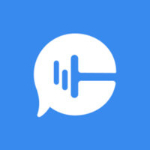

.png)
